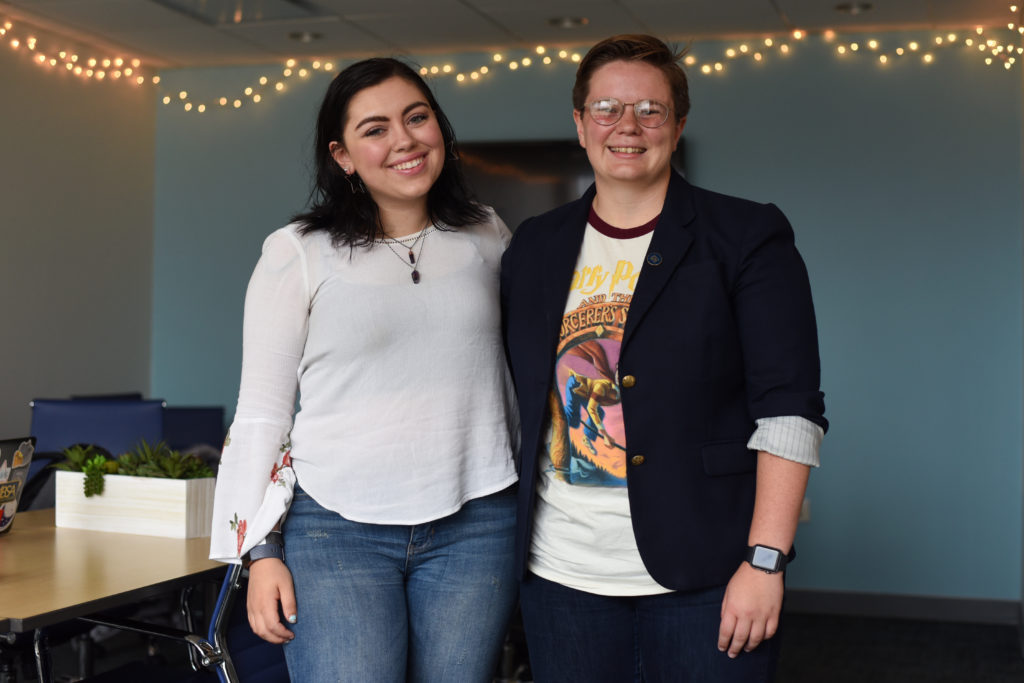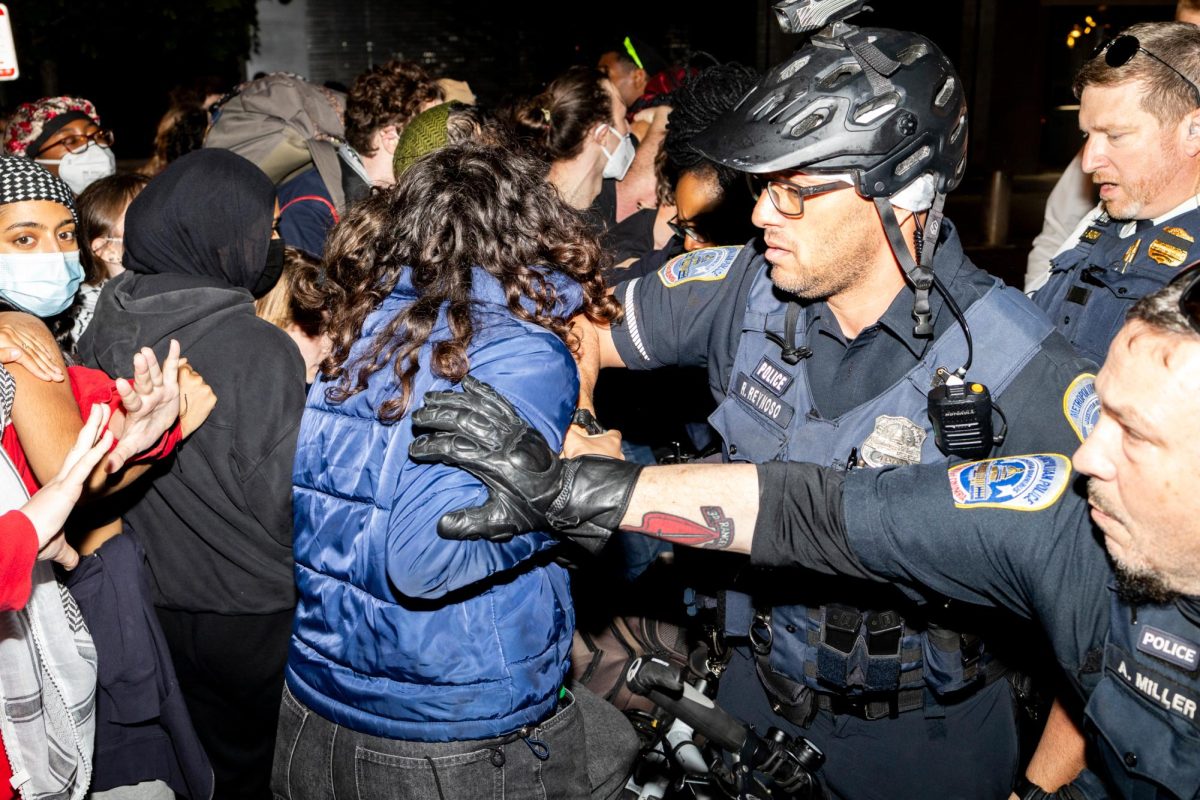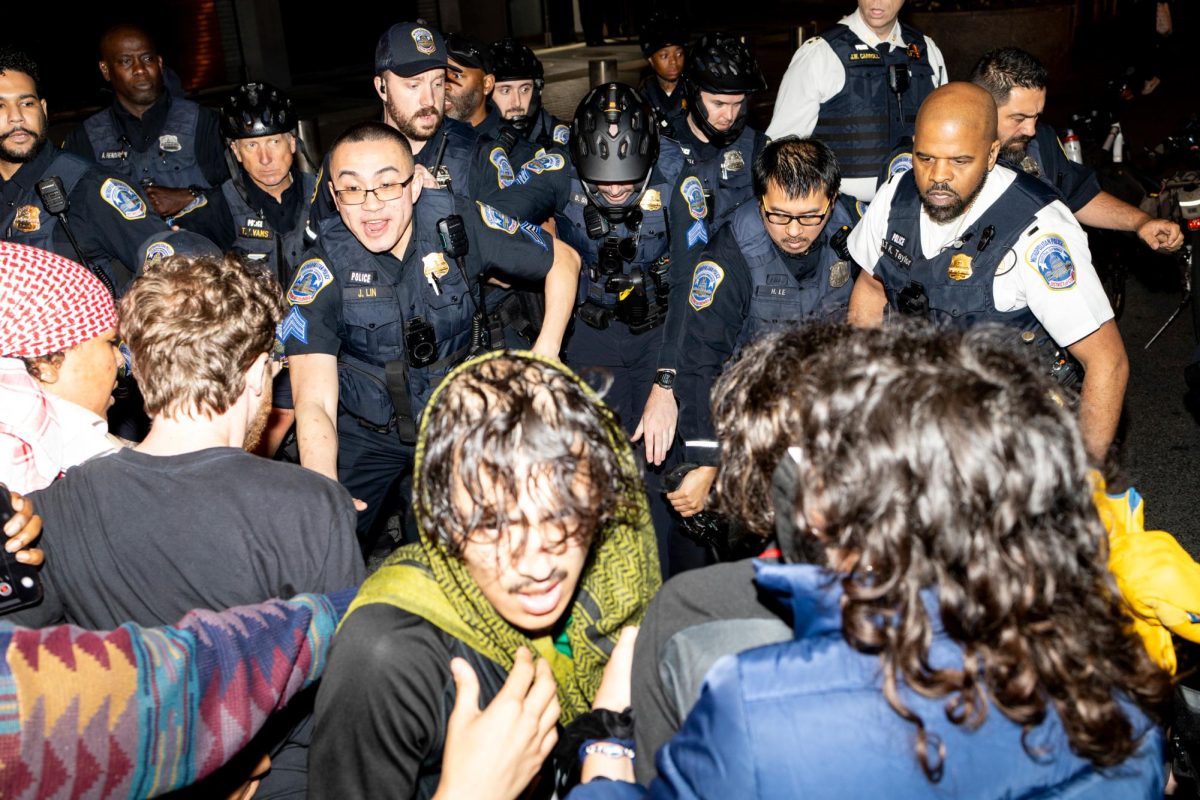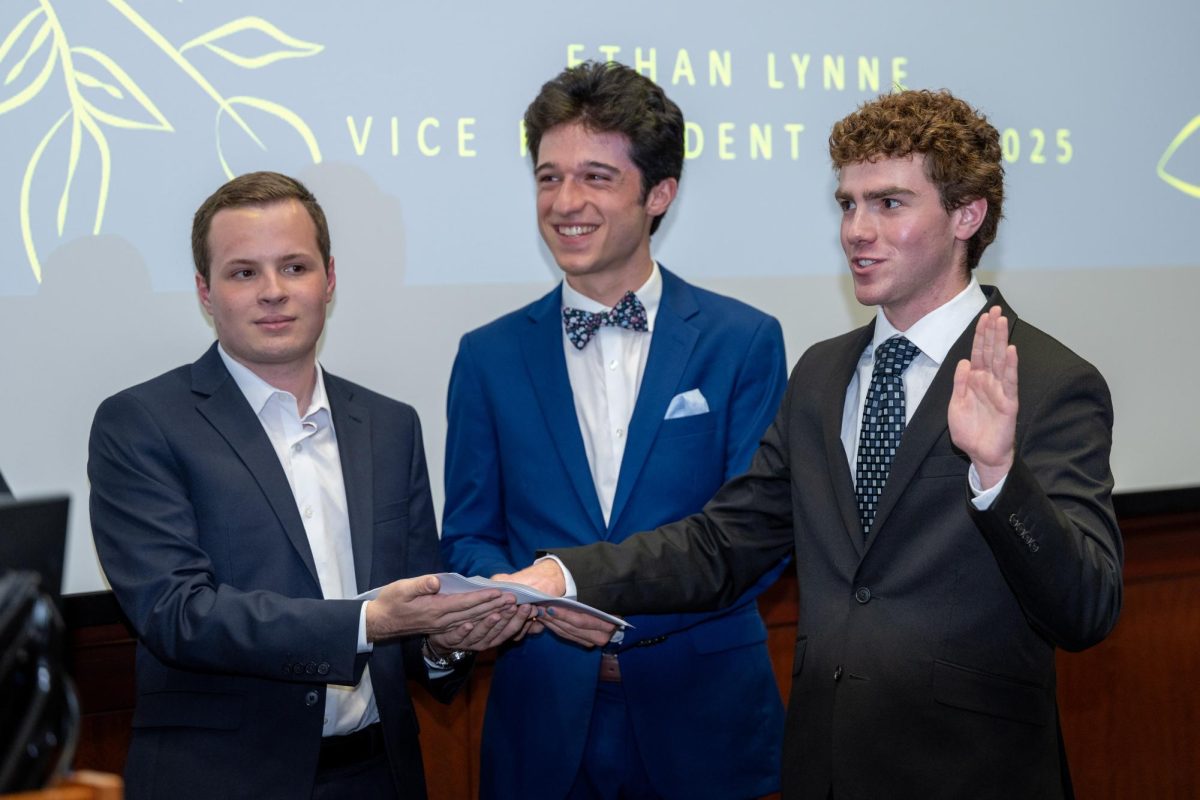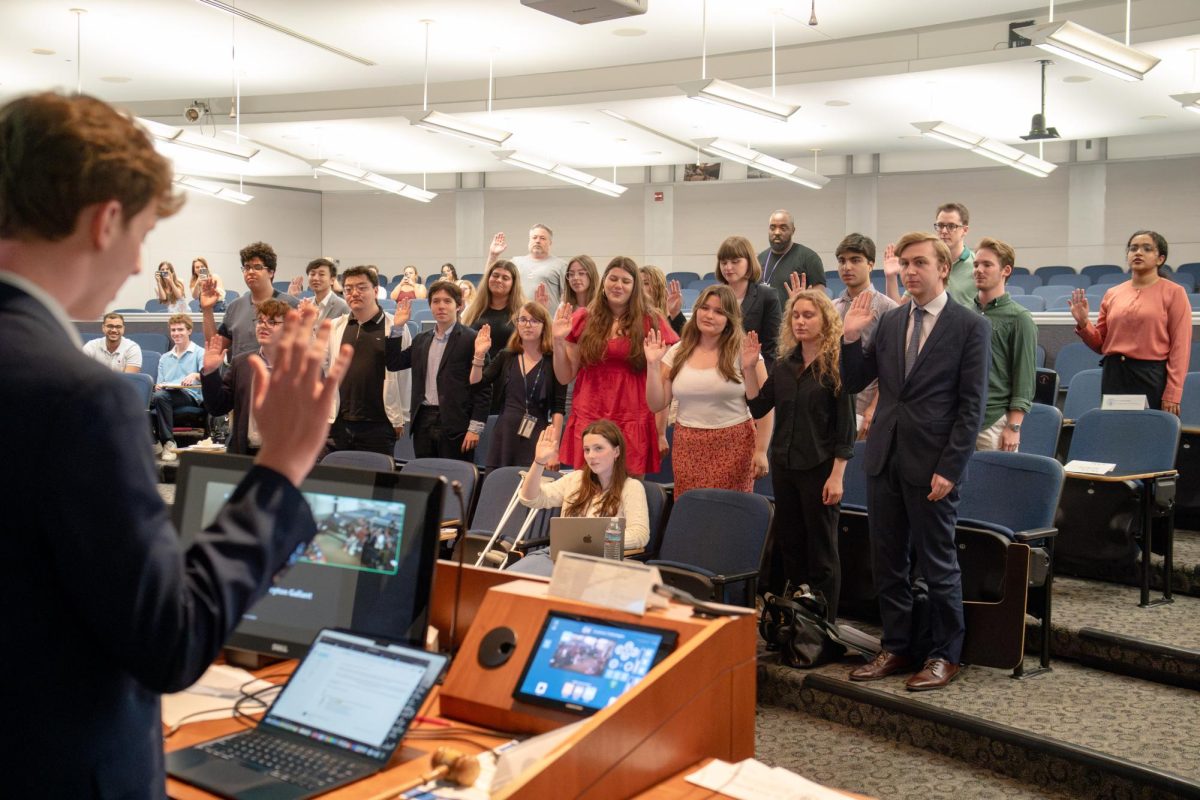Updated: April 20, 2020 at 5:44 p.m.
The outgoing Student Association leaders said they prioritized ways to address accessibility issues and increase student input on top-level decisions throughout their term.
SA President SJ Matthews and Executive Vice President Amy Martin said they focused on campaign initiatives like expanding the People for Periods project and eliminating transcript fees since beginning their tenure. Martin said forming relationships with student leaders and taking time to collect information about the Americans with Disabilities Act ensured they were able to accomplish goals like increasing physical accessibility of classrooms.
“We spent months doing the research, and it was challenging in that way because we felt that it was important to students and it was important to us,” Martin said. “It’s been really rewarding seeing faculty embrace it.”
Martin said she, SA Chief of Staff Nicole Cennamo and 20 student volunteers spent months researching ADA regulations and photographing inaccessible spaces on campus to create a report with suggestions to update 68 spaces. Martin said officials updated the H Street Crosswalk and allocated more funds toward updates to classroom accessibility after the the report’s release.
“We felt that this was a really important thing to accomplish for students, and the more important you feel a project is, all of a sudden, the more challenging it becomes because the stakes are higher,” Martin said.
SA leaders released a report in January including more than 40 initiatives members of the SA completed last semester, like forming the “Task Force On Combating Anti-Semitism,” starting the “Colonial Moniker Taskforce” to change the University’s nickname and supporting the creation of a Mount Vernon Campus health clinic.
Martin said she hopes future SA leaders will continue the expansion of the People for Periods program, which provides pads and tampons to various campus bathrooms using University funds, to allow all students equal access to sanitary products. Matthews and Martin said they hoped their push for fossil fuel divestment and a new University nickname would have come to fruition under their leadership, but “big changes” typically take more time.
Martin added that she is proud of SA members’ response to support students during the COVID-19 pandemic. SA leaders held a food drive for students’ unwanted food to donate to The Store before leaving campus and set up a spreadsheet for students to document resources for students affected by COVID-19.
She said SA members acted quickly to facilitate these programs and communication about legislation with all members are scattered throughout the country to hold their senate meetings online.
“We’ve really learned how to cope with surprises and changes in the adjustments to the plan and how to go with the flow and how to just take whatever comes in stride,” Martin said. “Finishing our terms virtually is a great example of that.”
Cennamo, the SA chief of staff, said the incoming SA administration should advocate for the mental health components of accessibility like creating on-site Disability Support Service training and increase faculty training to accommodate non-visible physical disabilities.
She said SA leaders were able to outline short and long-term accessibility goals in the report like updating campus signage, hiring a University ADA compliance officer and alternating construction project plans to meet ADA guidelines. She said SA leaders this year compiled this information, but future SA leaders must continue advocating for “physical” changes to take effect.
“My hope is that the SA continues addressing accessibility in an intentional manner based on the Accessibility Report and makes an active effort to include the voices of disabled students in the room,” Cennamo said in an email.
Matthews said administrators often listened to SA leaders’ ideas and have been open-minded about initiatives like changing the Colonial moniker and divesting from fossil fuels. She said the creation of task forces within the Board of Trustees to discuss issues like building name changes and divestment demonstrated a positive relationship between SA leaders and administrators.
The strategic planning advisory board – which has been put on hold amid the pandemic – was the result of communication between officials and students, Matthews said.
“I think I came in expecting a lot of pushback on ideas and more often than not administrators were always willing to hear what you had to say,” Matthews said. “And more often than not, they were supportive of it.”
Matthews said SA leaders also pushed to increase financial accessibility for students through the elimination of transcript fees – a resolution that will be voted on in the Faculty Senate in May.
SA leaders also worked with administrators last semester to give students more laundry and printing credits. The Board will vote on eliminating transcript fees and on the expansion of the first-year forgiveness policy in May, according to an email sent to students in early April.
Matthews said she hopes the next SA administration will continue to increase affordable, accessible grocery options for students and bring at least one dining hall back to campus. She said the addition of food trucks in Potomac Park provides more affordable food options and was a “good first step” to decrease food insecurity, but officials must add a dining hall to fully address the issue.
“I think that’s an example of being able to adapt short-term to meet the needs of food insecurity, while also keeping our eyes on a longer-term goal of completely eliminating it,” Matthews said.
This post has been updated to clarify the following:
This post has been updated to better reflect a paraphrase from Nicole Cennamo about the purpose of faculty trainings related to student disabilities.


